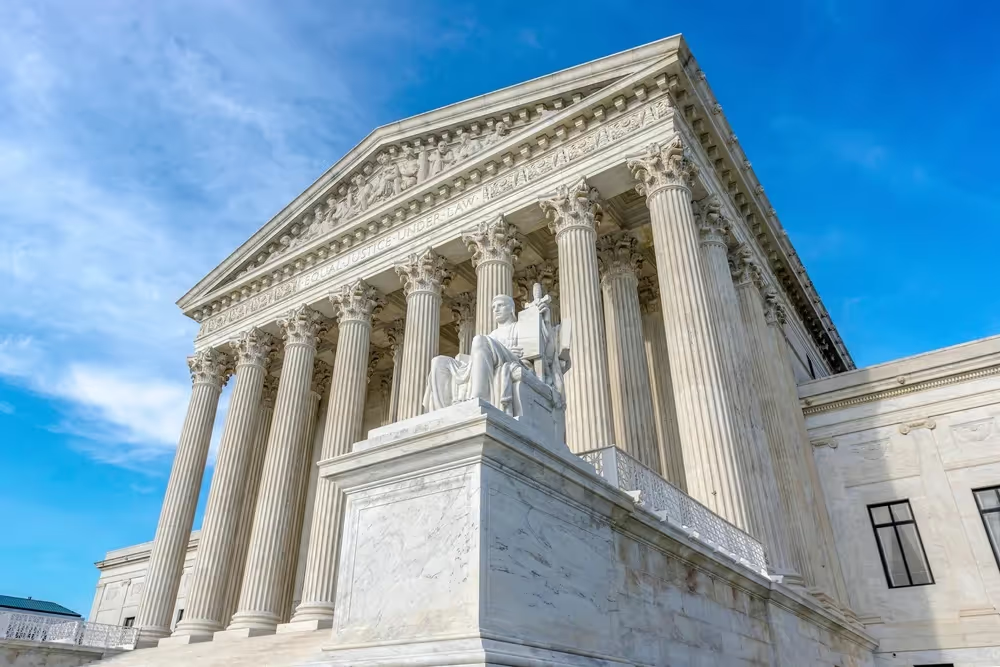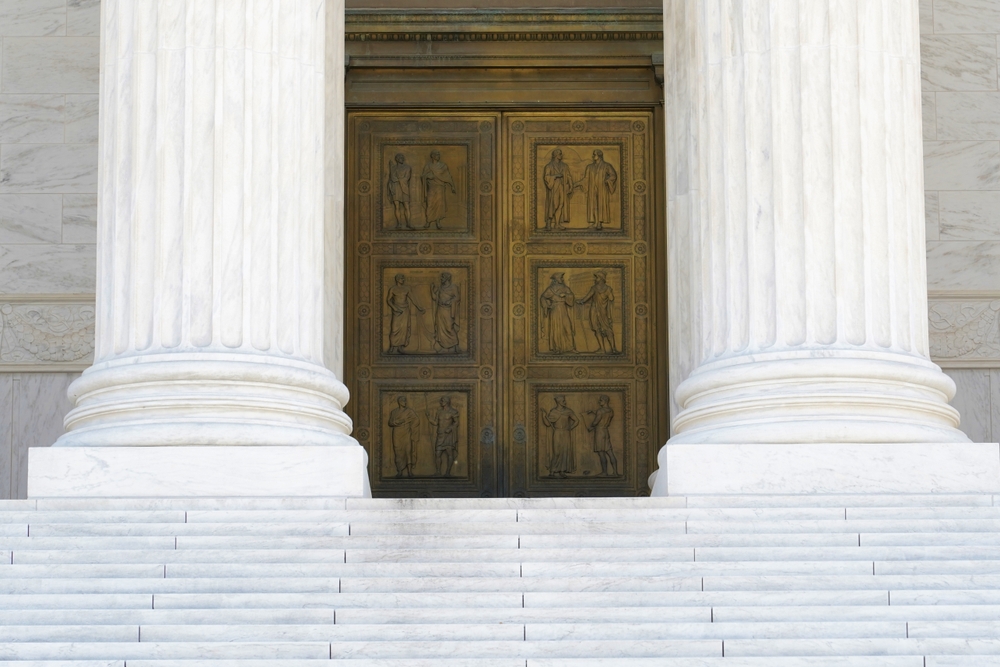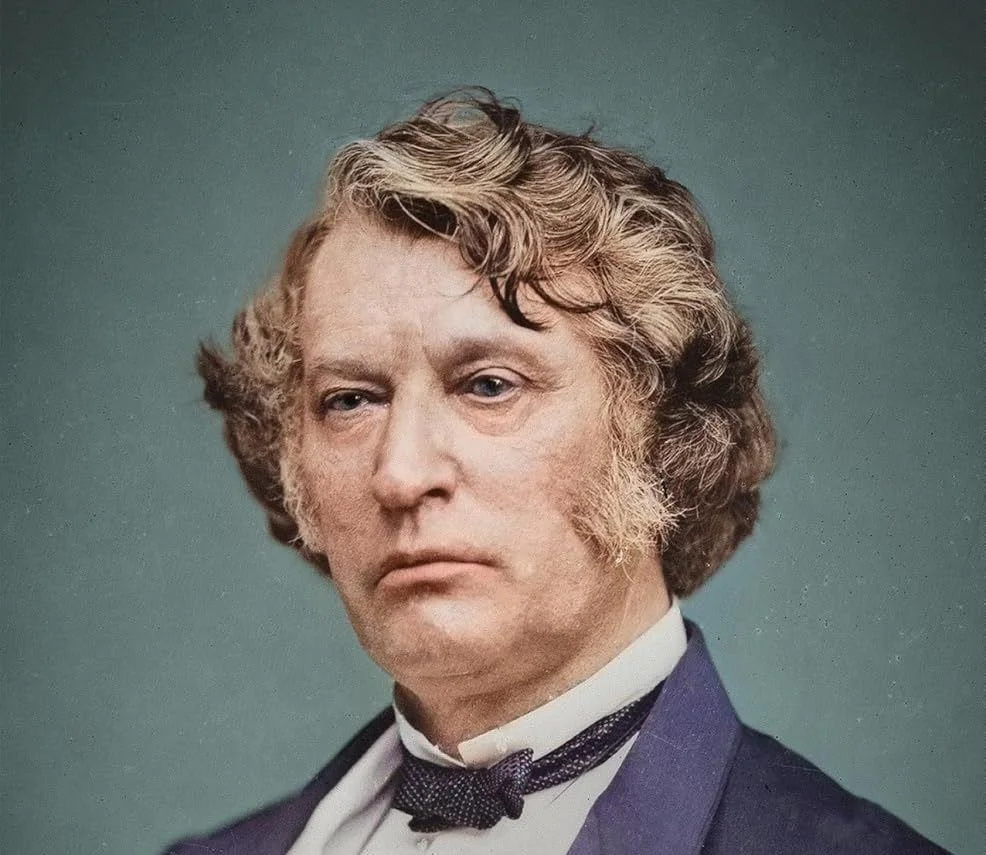
The Court's Obscenity Jurisprudence Is Due for Revision
In Free Speech Coalition v. Paxton, the Supreme Court will determine if states can force pornographic websites to verify that their users are over 18 years old.
In January, the Supreme Court will hear a free speech case that raises a surprisingly difficult question: can states force pornographic websites to verify that their users are over 18 years old?
Anyone not familiar with the Supreme Court’s complex obscenity jurisprudence probably thinks that the answer is an easy “yes.” However, one hundred years of jurisprudence untethered from the Constitution makes the question difficult. Even more difficult is the question of how to reattach that jurisprudence to the Constitution.
Those questions arise in the case of Free Speech Coalition v. Paxton. The name is curious because the plaintiffs are producers, distributors, and performers of pornography, not traditional free speech defenders. The pornographers read the Supreme Court’s obscenity jurisprudence as extending full free speech protections to their work. For that reason, they sued Texas after it passed a law requiring pornographic websites to “use reasonable age verification methods” to make sure that their users are over 18. They argue that that law impermissibly “chills” peoples’ access to free speech.
The pornographers’ legal argument is stronger than most non-lawyers would probably assume, which is why Texas’ law carefully targets “obscenity” as defined by the Supreme Court in a 1973 case called Miller v. California. Miller held that obscenity is not protected free speech and is present in media that, according to “contemporary community standards,” “appeals to the prurient interest,” depicts sexual conduct in a “patently offensive way,” and “lacks serious literary, artistic, political, or scientific value.”
Miller was the Court’s attempt to erase its embarrassment from Jacobellis v. Ohio, which failed to define obscenity and gave us Justice Potter Stewart’s famous quip, “I shall not today attempt to further define [obscenity]…But I know it when I see it.” Although Miller delivered something more coherent than Justice Stewart, it created confusion.
Miller created confusion not because its definition is amorphous and subjective—community standards often are—but because the Court refused to let communities enforce their own standards. The Court claimed the power to decide whether something violated the community's standards.
What are “contemporary community standards” for nine elite lawyers? Whatever they are, they aren’t those of the citizens of any town, county, or state living far from the justices’ marble palace in Washington, DC. Left to choose their own standards, the people of those places would create a regulatory patchwork for pornographic media. As problematic as that patchwork would be to transnational pornography distributors, its immense advantage is that it would let the people decide a serious moral question for themselves.
But the Court chose instead to impose one rule on the nation, which it anchored not in the Constitution or in historical obscenity regulations but in its own sense of what was offensive. Regulating this complex topic for the entire nation is immensely difficult, however, so the Court defaulted to an extreme libertarian position that largely forbids regulating pornography (apart from child pornography, which thankfully can be banned).
There is, however, one exception, and it is the exception on which Free Speech Coalition v. Paxton turns. In Ginsberg v. New York, the Court held that a state may ban brick-and-mortar stores from selling pornographic magazines to minors. Thus, in response to the pornographers’ claim that Texas’ law burdens peoples’ access to pornography, Texas responds that its age-verification law for websites is analogous to Ginsburg’s age-verification requirement for brick-and-mortar stores.
The parties engage in nuanced legal fights about the applicability of this case, what level of judicial scrutiny applies, and various procedural issues. What is missing from their debate, however—what has been missing from the Supreme Court’s free speech cases for the last hundred years—is any discussion about what the First Amendment means when it says, “Congress shall make no law…abridging the freedom of speech.”
What was “the freedom of speech” to the people who voted for the Bill of Rights? What speech, if any, did states prohibit at that time? Who was supposed to set free speech boundaries—courts or legislatures?
The first question is hard. Scholars disagree in good faith and with good research. The other two are easier. States did prohibit more than we prohibit today, including pornography and other things that “strike at the root of moral obligation.” Legislatures, not courts, were supposed to set the boundaries of free speech, while juries and judges enforced those boundaries.
But the justices have wandered from that original path, and thorny questions tug at their robes if they try to turn around. Can we trust elected officials to care about the rights of people with unpopular opinions in this polarized age where the defining characteristic of too many elected officials is civic ignorance? The culture of free speech is waning in America; are our libertarian case law and counter-majoritarian power the only things keeping it alive? If we think legislatures should be primarily responsible for defending free speech, what role, if any, should we keep for ourselves? If we keep a role, how do we decide where the lines are? In other words, how much discretion do legislatures have to define obscenity, and when must we step in and say, “you’ve gone too far”? And what of our concern for preserving old precedents, even sometimes wrong ones, that the people have come to rely on?
These are all tough questions, and the list of them goes on. In Ginsberg, Justice William Douglas dissented from the majority opinion upholding the age verification law, arguing that the Court should simply protect all obscenity. The Court’s attempt to define obscenity made it “the Nation’s board of censors,” Douglas argued, and he knew of no one “less qualified, first, to know what obscenity is when they see it, and second, to have any considered judgment as to what the deleterious or beneficial impact of a particular publication may be on minds either young or old.”
Douglas threw up his hands when faced with the daunting task the Court took on when it appointed itself the nation’s obscenity police. His impulse is understandable. There is a reason the Founders did not intend for the Court to have that job. Nine lawyers are, indeed, uniquely ill-suited to it. Regulating obscenity requires that someone balance morality, prudential concerns about how much power regulators ought to have, and scientific research about pornography’s impact on the human brain. The people, not enrobed elites, are best suited to this balancing act.
And yet, even if we do not know how to answer all the thorny questions listed above, we can still be sure that Douglas’s approach—blanketed protection for all obscenity—is not correct. For one thing, Douglas’s approach does not reverse the Court’s earlier error of appointing itself the arbiter of obscenity; instead, it makes the Court the protector of all obscenity. For another, we know that states did ban obscenity at the Founding. And for a third, we know that pornography is, in fact, harmful to both young and old minds and that states have always had an interest in protecting their citizens from those harms.
Still, choosing a better path than Douglas’s is daunting. It might be impossible to go back to the original path. It might even be unwise to go back when Americans are losing their understanding of why free speech is important. Half of America thinks that speech is only worth protecting when it supports “our democracy,” and the other half is happy to see their enemies canceled in retribution for canceling their friends. Meanwhile, our English cousins, whose ancestors planted the seed of free speech in us, are sending people to jail for praying silently outside abortion clinics and criticizing the government’s immigration policy. With that background, maybe we need a libertarian, counter-majoritarian anchor to stop the cultural drift toward censorship. Or maybe we need to become more comfortable with patchwork state obscenity regulations gently policed by the Court. Or maybe the Court should step back entirely and let the people regulate speech however they please hoping that they will rediscover restraint in the face of mutually assured censorship.
There are no easy answers. The best we can reasonably expect from Free Speech Coalition v. Paxton is that the Court’s still-new originalist majority will begin to think seriously about these questions rather than reflexively follow its old cases deeper into the bramble. Perhaps the Court will end up in the same place, perhaps somewhere different, but it would be good for it to treat this case as an opportunity to figure out where its doctrine is tending so that it can give it some measure of constitutional legitimacy.
GianCarlo Canaparo is a senior legal fellow in The Heritage Foundation’s Edwin Meese III Center for Legal and Judicial Studies.
Constitutionalism

Amicus Brief: Hon. William P. Barr and Hon. Michael B. Mukasey in Support of Petitioners
Former AGs Barr and Mukasey Cite Civitas in a SCOTUS Brief

Rational Judicial Review: Constitutions as Power-sharing Agreements, Secession, and the Problem of Dred Scott
Judicial review and originalism serve as valuable commitment mechanisms to enforce future compliance with a political bargain.

Supreme Court showdown exposes shaky case against birthright citizenship
Supreme Court will hear challenges to Trump's order ending birthright citizenship, testing the 14th Amendment's guarantee for babies born in America.

Slavery and the Republic
As America begins to celebrate its semiquincentennial, much ink has been spilled questioning whether that event is worth commemorating at all. Joseph Ellis’s The Great Contradiction could not be timelier.

Two Hails For The Chief’s NDA
Instead of trying to futilely plug the dam to stop leaks, the Court should release a safety valve.


.avif)










.avif)



